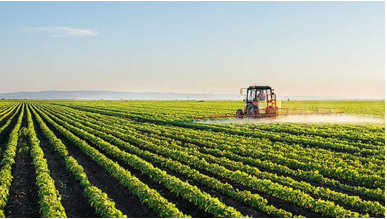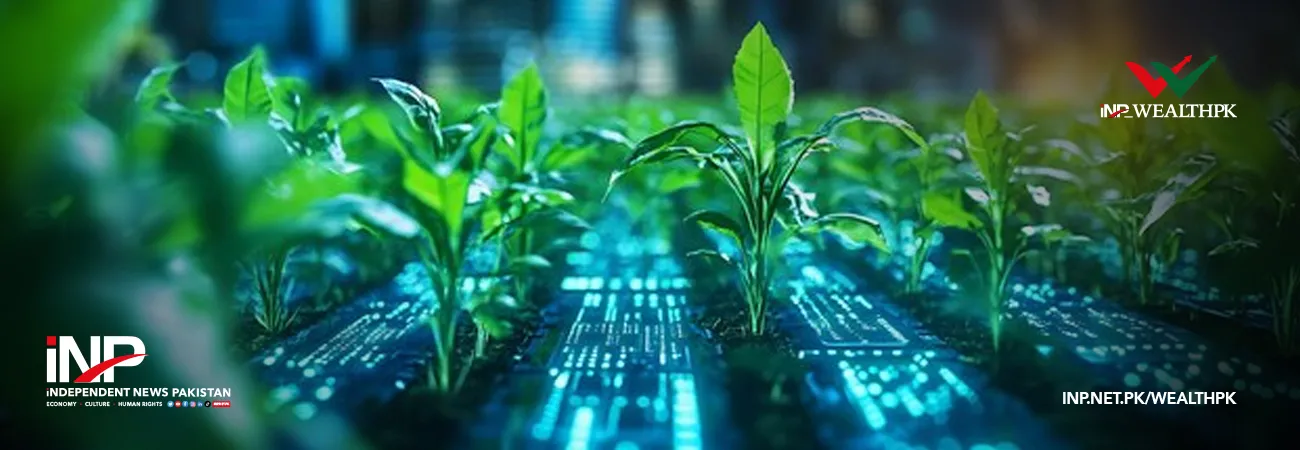INP-WealthPk
Azeem Ahmed Khan
The Food and Agriculture Organisation (FAO) of the United Nations plans to support Pakistan in transforming its agriculture and food systems through digitalisation, diversification, and deeper private-sector engagement, said James Robert Okoth, Officer-in-Charge of FAO in Pakistan.

In an interview with Wealth Pakistan, Okoth said the organisation aims to build on past lessons to help shift Pakistan’s farming from traditional methods to a modern, integrated agri-food system.
“We need to transform the agriculture system to make sure that we are able to address all the challenges right from the garden to the plate,” he said. “This means improving collaboration among all players in the food value chain so that food is grown sustainably and remains safe and healthy.”
He said FAO and other UN agencies were working to help Pakistan move away from reliance on a few staple crops toward a more diversified agricultural economy. The introduction of high-value crops, he noted, would not only raise farmers’ incomes but also improve national nutrition levels.
Okoth underlined that stronger links with the private sector were vital for agricultural revitalisation. “If we are to have a vibrant agricultural sector, then the private sector has a very important role in linking smallholder producers to both local and international markets,” he said.
He added that FAO intended to expand the use of artificial intelligence and precision agriculture to boost productivity and competitiveness. “Digitalisation is essential for Pakistan to compete with other countries,” he remarked.
Another area of focus, Okoth said, was improving food safety and quality standards to curb rejections of Pakistani produce in foreign markets. The FAO plans to collaborate with the government to develop mechanisms that lower aflatoxin and pesticide levels in export commodities. “Pakistan has the ability to compete very favourably when it comes to agricultural produce on the international markets,” he stressed.
Reflecting on FAO’s 80 years of global work, Okoth described the organisation’s journey in Pakistan as “fruitful,” highlighting its strong partnerships at both federal and provincial levels. “Our goal is to make sure that everybody has access to enough and good-quality food for a healthy life,” he added.
He said FAO’s work in Pakistan spans policy development and field projects addressing climate change, food security, animal health, and nutrition. Climate change, he cautioned, remained a cross-cutting challenge, noting Pakistan’s vulnerability to floods, heatwaves, and other extreme events.
FAO programmes, he explained, are tailored to provincial needs, such as tackling water scarcity in Balochistan and managing recurrent flooding in Sindh and Punjab.
Okoth also emphasised the need to empower women and youth, calling them “the future of a country like Pakistan, especially amidst climate change.” FAO’s initiatives, he said, adopt a gender-transformative lens to ensure women and youth remain central to agricultural growth.
“We are taking agriculture as an industry, and the idea is to make it dignified,” he said, citing financial literacy and skill-development trainings for women and young farmers through community platforms like Women Open Schools and Farmer Field Schools. On a personal note, Okoth said his three-year stay in Pakistan had been deeply rewarding.
“I love the energy, the rich culture, and the diversity of Pakistan. It’s a nice place to work,” he said.
Credit: INP-WealthPk









